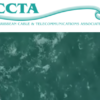News

A Few Words About “Copyright Trolls”
If you follow copyright law and intellectual property-related news at all, then there’s little doubt that you’ve read about “copyright trolls,” a term for which Wikipedia offers as good a definition as I’ve seen: “a pejorative term for a party that enforces copyrights it owns for purposes of making money through litigation, in a manner considered unduly aggressive or opportunistic, generally without producing or licensing the works it owns for paid distribution.”
In the last several weeks, there has been a great deal written and said about Prenda Law, and the various attorneys and law firms associated with it. Over at Popehat.com, attorney Ken White has covered the Prenda saga much better than I’m capable of, so if you aren’t familiar with the story to-date, that’s where I would start.
Let me say up front that I don’t know whether any of the allegations against Prenda are true, and that Prenda and the attorneys, paralegals and others associated with it are entitled to the same presumption of innocence that the rest of us are. If, however, the allegations against Prenda are true (allegations that include failure to disclose a financial interest in its cases, identify theft, and blatantly ignoring orders of the court, to name a few) then it is the sort of organization that should be condemned, loudly and forcefully, by rights-holders, the legal community, the judiciary, and the general public alike.
Make no mistake; I’m of the mind that modern digital piracy is a scourge much worse than its pre-Internet Age counterpart. In the days before online distribution, even the largest of pirate outfits couldn’t distribute its counterfeit wares instantly and globally, as the modern pirate can (and does). Staring at a problem like that, it’s no wonder that some rights-holders would consider damn near any tactic as a countermeasure, including suing torrent users as “John Doe” defendants.
What we cannot do as rights-holders, however, is to allow our frustration and anger over online piracy to affect our judgment when it comes to how we approach the anti-piracy fight. We cannot allow our cause to be derailed by unethical opportunists, by people who would abuse the very legal system that we are asking to help protect and enforce our intellectual property rights.
I have no issue with rights-holders seeking redress in the courts when their intellectual property has been infringed upon. I must admit, I have reservations about the idea of suing file-sharers, in general (reservations that stem from public relations and customer satisfaction concerns more than legal concerns), but if it is done properly and with due respect for the rules of evidence and protocols of the court, I don’t see anything inherently monstrous in a rights-holder taking to court those who infringe on their copyrights via torrents, or by way of any other distribution technology.
What I do have a problem with is using our legal system to intimidate, cajole and manipulate people (people who may well be innocent of the alleged infringement at hand, to boot) into signing settlement agreements, presenting questionable evidence as ironclad proof of infringement, and treating orders from the court as mere suggestions.
If you’re a rights-holder who decides to go down the road of filing lawsuits against end-user consumers, be they torrent users or people who share files via some other p2p protocol, you absolutely must take the time to do your due diligence when hiring attorneys to represent you in those efforts. When considering an attorney for that purpose, here are some basic, fundamental questions you should ask yourself:
* Is your prospective counsel an experienced intellectual property litigator?
* Does your prospective counsel have a proven track record of ethical conduct? (Or, at the very least, a track record lacking evidence of unethical conduct.)
* Does your prospective counsel ask you the right questions when discussing your litigation plans? For instance, if the attorney in question doesn’t ask you, fairly quickly, whether you have registered a copyright for the work(s) you’d like to sue over, then something is wrong. That person either doesn’t know what he’s doing, or is making entirely too many assumptions regarding his prospective client’s familiarity with intellectual property law.
There are other considerations, of course, but if you find cause for concern with respect to the answers to any of the questions above in connection with an attorney/firm you are considering retaining, then you should NOT hire that attorney or firm. Period.
One of the services that DMCA Force offers to its clients is referral to solid, reputable intellectual property attorneys. Even given a recommendation from us (a recommendation that I like to think is a very well-considered one) it is still incumbent upon the client to ask the right questions, and to confirm that the attorney or firm they’ve been referred to is right for them.
Intellectual property litigation is serious business. It’s complicated, costly, fact-intensive and potentially controversial in the eyes of the court, particularly once you get into litigating against John Doe end users. As such, it’s not the sort of thing you want to hire just any old lawyer to handle. Choosing the wrong attorney can result in much worse than a waste of time, effort and money; it can result in your very brand being tarnished, when consumers (or arguably worse, federal judges) start painting you with the same brush applied to your choice of counsel.
Google Empowers DMCAForce to shut down sites…
March 4, 2022

Change the Way you Protect your Content
September 15, 2021

Joins us in the Anti-Piracy Panel at the CCTA 2020 in Bahamas
February 9, 2020
Book Your Meeting During Affiliate Summit
January 22, 2020
Got questions about protecting your digital assets from copyright infringement?


